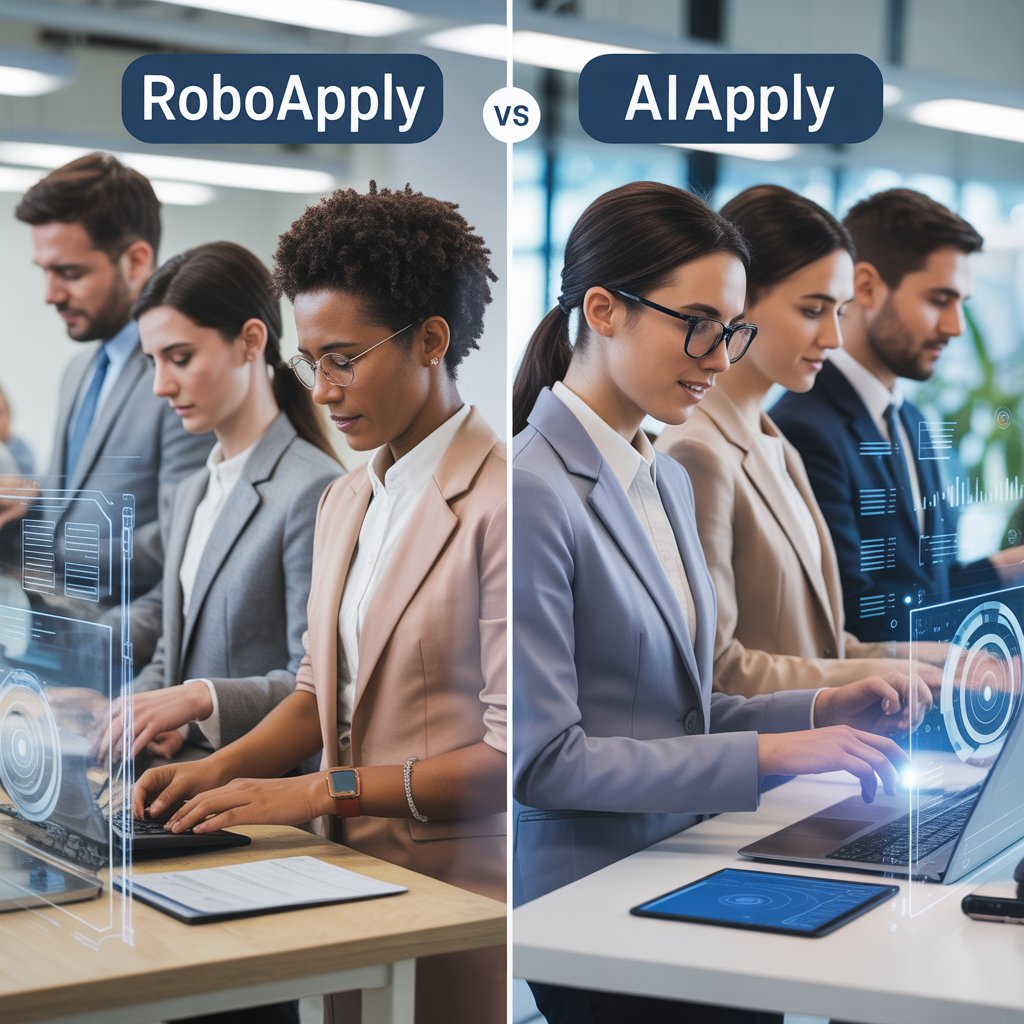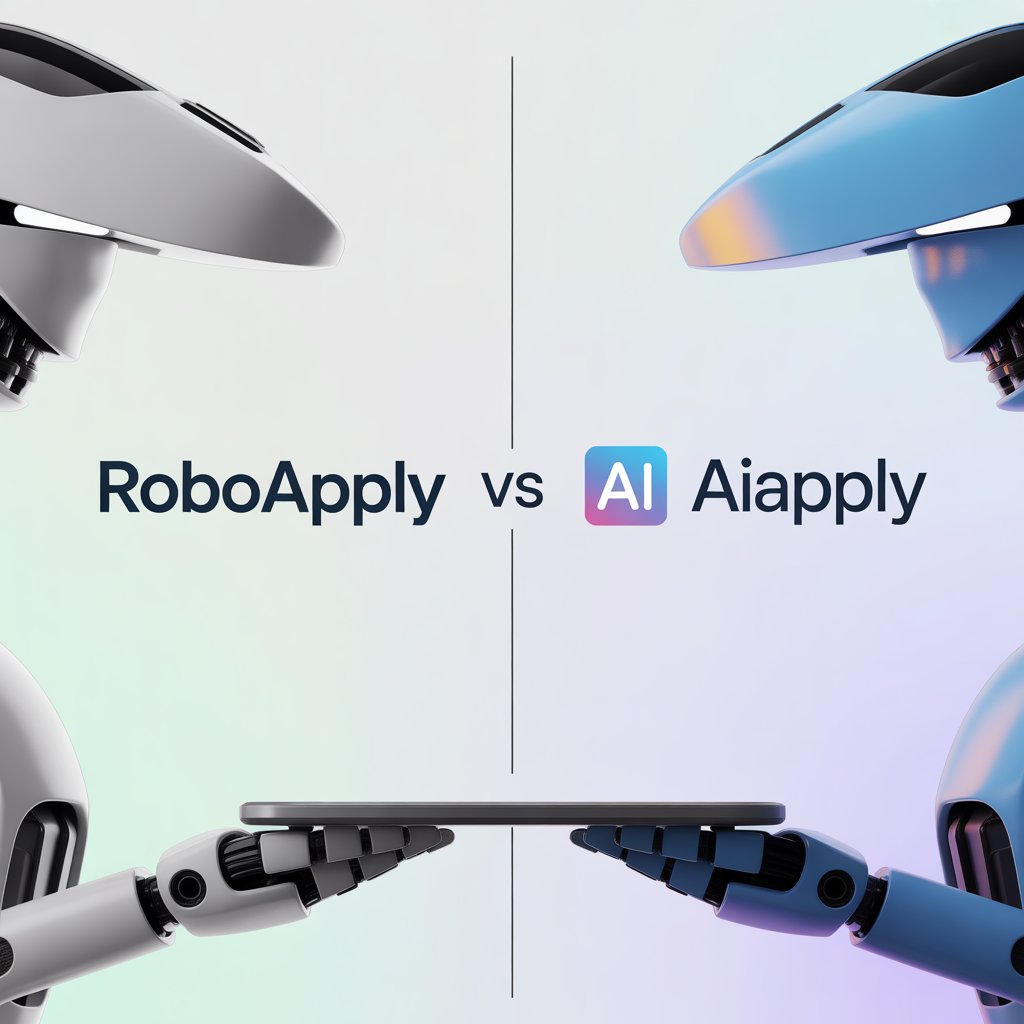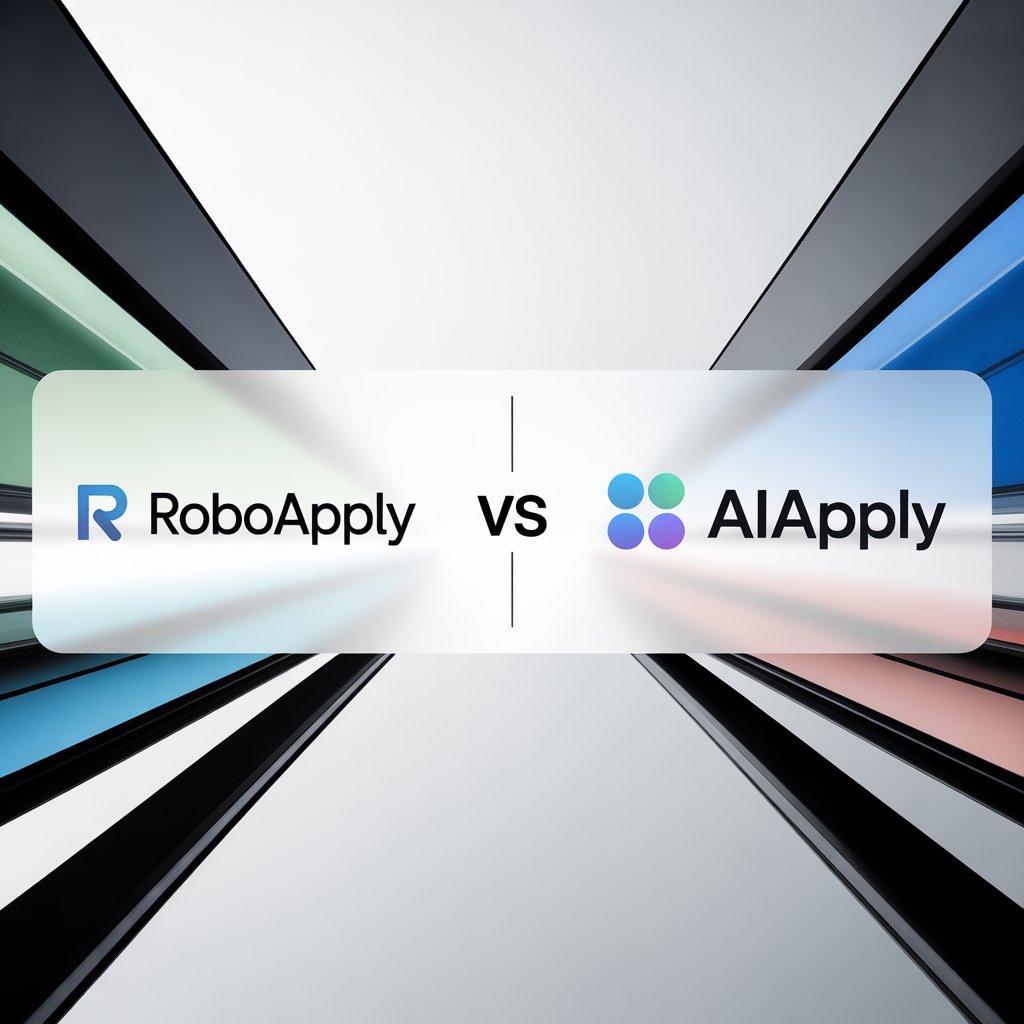Job seekers are drowning in options when it comes to AI-powered job search tools. With so many promises of automation and interview coaching, it can be hard to know which one actually helps you land real interviews. RoboApply stands out from the crowd by making it easy to optimize your resume, create a professional cover letter, and auto-apply to jobs across platforms like LinkedIn and Indeed—all in one place.

AIApply is another well-known tool that focuses on automating applications and providing interview help. But users often wonder which solution delivers better results and which platform is simpler to use as part of a busy job search. By comparing RoboApply and AIApply side by side, job seekers can make a clear choice about which service gives them the most value.
Anyone looking for ways to land more interviews without endless manual work will find this review helpful. This post shows exactly what makes each tool different, shares real copy-and-paste templates, and explains how job seekers can use these tools to move forward faster.
How RoboApply and AIApply Operate for Job Seekers
RoboApply and AIApply both use artificial intelligence to help people simplify and speed up their job search. They focus on automating applications, improving documents, and matching candidates with relevant job openings.
Application Automation Methods
RoboApply uses automation to help job seekers apply to hundreds of roles quickly. Its system scans job boards like LinkedIn, Indeed, Dice, and ZipRecruiter. From there, users can set up profiles and preferences so that RoboApply targets the right positions.
A key feature is its one-click auto-apply tool. This function fills out job applications and submits them automatically, reducing manual effort. The process includes uploading a resume, selecting preferred job types, and letting RoboApply handle the repetitive parts.
AIApply also automates job applications. Users input their details and the platform generates tailored resumes and cover letters for each application. However, users often need to verify or adjust each document before sending. This can make the process less seamless compared to RoboApply’s full automation approach for auto-applying to jobs across platforms.
AI Algorithms and Personalization
RoboApply personalizes the application process with algorithms that score resumes, match keywords, and recommend improvements. The resume scoring system checks for industry keywords, structure, and readability. Users get feedback and suggested edits to help optimize your resume.
The tool also creates tailored cover letters using AI. Job seekers enter a job title and company, and RoboApply’s system generates a professional cover letter. This feature can be tested for free at coverletter.robo-apply.com. The resulting letters are unique and personalized, increasing the chances of making a strong impression.
AIApply provides resume and cover letter templates as well. Their AI rewrites applicant materials based on each job description. While this offers some degree of personalization, the level of feedback and scoring is typically lower than what RoboApply delivers.
Supported Industries and Job Types
RoboApply works with a wide range of industries, including tech, finance, engineering, healthcare, sales, and more. The tool is especially effective for users seeking roles that have consistent application forms and resume standards.
The platform supports entry-level to executive positions, making it flexible for different career stages. Its broad compatibility helps users find positions that match their skills and interests across dozens of job boards.
AIApply targets many of the same industries. Its strength lies in producing quickly tailored application documents across white-collar jobs. However, its coverage for technical or niche industries can be more limited than RoboApply, especially when it comes to matching specific resume requirements and auto-filling specialist applications. This is important for job seekers who want a wide reach or need support for specialized roles.
Comparing Interview Success Rates

Both RoboApply and AIApply claim to help users land more job interviews, but how do their real-world results measure up? Success rates depend on user outcomes, available data, and several practical factors that influence who actually gets interviews.
Data and User Outcomes
Data on actual interview success rates is limited, especially for new tools, but certain trends are clear from user reports.
RoboApply users often highlight higher interview rates when using features like resume scoring and targeted cover letter creation. Many say that utilizing free resources such as create a professional cover letter on RoboApply improved their responses from employers soon after applying. These outcomes are supported by feedback on job boards and user forums. For example, some users mention receiving interview calls within days of tweaking their resumes and applying through RoboApply’s multi-platform system.
AIApply, according to user discussions, mainly focuses on interview practice and feedback sessions rather than automated application support. For instance, one review points out that AIApply does not auto-apply or create documents on behalf of users, which can limit its impact on getting more interviews directly. Instead, users receive insights on gaps in their application but must do the editing and applying themselves.
When comparing the platforms, RoboApply’s wider toolset―from resume optimization to guided cover letter writing―gives users a more active boost in landing interviews compared to the more advisory approach of AIApply. For those wanting higher response rates from employers, features that directly optimize your resume and simplify mass applications make a measurable difference.
Key Factors Influencing Interview Rates
The likelihood of getting interviews depends on specific actions taken and the technology used by each platform.
Key elements include:
- Quality of the submitted resume and cover letter
- Number of applications sent in a short period
- Use of keyword optimization to beat applicant tracking systems
- How quickly job applications are completed after jobs are posted
RoboApply automates many of these steps for users, combining resume scoring, real-time feedback, and the ability to auto-apply to jobs across platforms. Job seekers benefit from bulk applications and an improved chance of early placement in recruiters’ queues, which is crucial for getting noticed.
AIApply, by contrast, is more suitable for practicing interview skills, not for mass application or document creation. Some users may see better interview performance due to enhanced interview answers, but the initial hurdle—getting invited for an interview—depends on the effectiveness of their independently prepared documents.
For those prioritizing more interview invitations, tools that help build your resume with RoboApply and send out many tailored applications stand out as more effective. Focusing on efficiency and document quality has a larger impact on interview rates than just preparing for questions alone.
Comparing User Experience and Ease of Use: RoboApply vs AIApply

Ease of use and customization both play a major role in how well job seekers can apply for roles efficiently. A platform that is quick to set up and personalize can help users get interviews faster and with less effort.
Platform Interface and Setup
RoboApply offers a clean and modern dashboard that guides users step by step through creating resumes and cover letters. The menus are simple, and first-time users can start building a resume with only a few clicks. When using RoboApply, job seekers are not forced to navigate confusing settings or extra steps. Everything is organized in a way that helps users move from signup to application quickly.
AIApply, on the other hand, has a more traditional interface. While it does help with resume generation and cover letters, users may find the setup process takes longer and may require more manual data entry. RoboApply also provides one-click options to auto-apply to jobs across many platforms, while AIApply focuses mainly on document preparation. For those wanting to move fast, building a resume with RoboApply is more direct and less cluttered, especially when compared to AIApply.
Customization Options
Customization is key when applying for jobs in different fields. RoboApply allows users to pick from several resume templates, each with editable fields but also guided prompts. These prompts suggest bullet points, skills, and achievements based on the target role. You can further personalize your resume and easily create a professional cover letter from scratch or with AI support for free in the first three sections.
AIApply offers customizable templates as well, but most changes are manual. While AI suggestions exist, RoboApply’s platform generates more specific recommendations and lets users score their resumes for each job, helping them tailor documents without extra effort. Job seekers using RoboApply can also save multiple versions and switch between templates depending on the job board or employer requirements, making it easier to fine-tune applications for each role.
Pricing and Value for Job Seekers
RoboApply and AIApply are two popular tools for those hoping to boost their application success. Both offer paid plans, but key differences exist in what users get for their money, especially for resume-building and auto-apply features.
Subscription Models
RoboApply provides a flexible approach to subscriptions. Users can choose between monthly or yearly plans. The monthly plan suits short-term job seekers, while the lower-cost yearly plan is best for longer searches. RoboApply also includes unlimited resume scoring and access to make tailored cover letters. For those who want to both build resumes and auto-apply to jobs, it offers all-in-one pricing.
AIApply’s pricing starts at $24 per month, and the yearly plan averages about $12 per month with a current discount. It also covers AI resume building and access to general application support. There is little difference in price between these and platforms like Sonara.ai or JobHire AI, which fall between $20-$23 per month. For those needing to apply to hundreds of jobs quickly, these plans offer solid coverage for a flat monthly fee.
Here is a comparison table for clarity:
| Platform | Monthly Cost | Yearly Cost (per month) | Core Features |
|---|---|---|---|
| RoboApply | $23* | $12–15* | Resume builder, resume scoring, auto-apply |
| AIApply | $24 | $12 (w/ discount) | Resume builder, generic AI support |
| Sonara AI | $23 | $75/year | Auto-apply, resume builder |
*Actual RoboApply pricing may vary; check their site for current offers.
Free Versus Paid Features
RoboApply and AIApply each provide a mix of free and paid services. RoboApply stands out by allowing new users to try its resume scoring, template download, and even create a professional cover letter for free. This helps applicants quickly improve their job materials without upfront costs.
With AIApply, users get access to AI-driven resume suggestions and some basic job tracking for free. However, most advanced tools—like tailored job applications and cover letter generation—require a paid subscription. RoboApply’s free cover letter builder is a key feature not matched by most competitors and is available to all users at coverletter.robo-apply.com.
A bullet list for quick differences:
- RoboApply Free: Resume scoring, basic resume templates, free cover letter generator
- AIApply Free: Limited resume advice, simple job application tracking
- Paid Needed For: Bulk applications, advanced customization, export options on both tools
Job seekers who want the most value should test the free features first. RoboApply’s approach lets them build your resume with RoboApply, see a resume score, and craft cover letters without paying upfront. This helps users decide before committing to a subscription for automated job applying or broader job board coverage.
Frequently Asked Questions

RoboApply and AIApply both use AI to help job seekers apply to jobs faster and prepare for interviews more efficiently. These tools offer guided practice, question prompts, resume and cover letter creation, and some live simulation features to support users throughout the hiring process.
How do RoboApply and AIApply enhance the interview process for job seekers?
RoboApply streamlines interview prep by providing tailored, role-specific questions and on-the-spot feedback through its platform. It helps applicants research each employer and practice answers based on actual job descriptions. AIApply, on the other hand, offers instant answer suggestions and guides users through common and unexpected interview questions in real time.
Both tools allow users to practice interview scenarios, but RoboApply adds resume scoring, cover letter building, and the ability to apply directly to roles across multiple job boards, which can save candidates significant time. Tools like these also help users build confidence by making prep more structured.
What are the success rates of RoboApply and AIApply in securing interviews for candidates?
Exact success rates can vary by individual effort, job market conditions, and the roles applied to. RoboApply does not guarantee interviews; instead, it improves chances by optimizing resumes and cover letters and automating the job application process on platforms like LinkedIn and Indeed.
AIApply focuses on refining answers and interview technique, which can help move candidates to later interview rounds. There is no public, independent data that directly compares the success rates of RoboApply and AIApply in securing interviews.
Can RoboApply and AIApply help users practice effectively for final round interviews?
Yes, both tools provide tools to practice for final round interviews. RoboApply lets users simulate advanced interview questions or request behavioral and technical prompts tailored for the final stage.
AIApply includes real-time support for tough questions, making it easier to tackle last-minute curveballs. Users should use these simulations alongside other resources, like mock interviews with peers, for best results.
What features do RoboApply and AIApply offer for live interview simulations?
RoboApply includes practice modules that allow users to rehearse live interview settings, including technical and behavioral prompts. These sessions can be replayed to help users spot their strengths and weaknesses. Feedback is given instantly for improvement.
AIApply provides instant answers and guidance during practice sessions and simulates real-time interview questions to challenge users as they would be in an in-person or video interview experience. AIApply’s browser extension is also designed to provide instant feedback and guidance during live practice.
Are there any free versions of RoboApply or AIApply that offer comprehensive interview preparation?
RoboApply offers a free cover letter builder at coverletter.robo-apply.com and gives users some access to resume building and optimization tools at no cost. These basic tools cover much of what is needed for straightforward interview prep and job application.
AIApply also has limited free features but saves the more advanced guidance and question sets for paid users. Comprehensive preparation with live interview simulation is typically found in premium versions.
How does using RoboApply or AIApply compare to traditional interview preparation methods?
Using RoboApply or AIApply can save job seekers hours by automating resume creation, providing structured interview practice, and allowing repeated simulations. Traditional methods often require more time searching for sample questions, practicing alone, or relying on friends for feedback.
RoboApply stands out because it can auto-apply to jobs across platforms and score resumes, which are steps not available with pen-and-paper prep. These tools also help users build a resume with RoboApply and create a professional cover letter quickly, giving them a head start over traditional methods.













